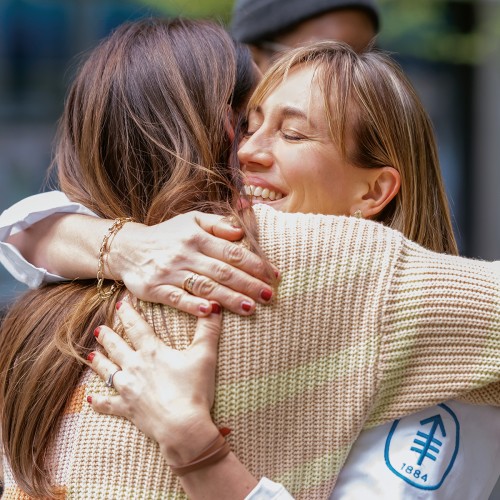Caring for Young People With Cancer
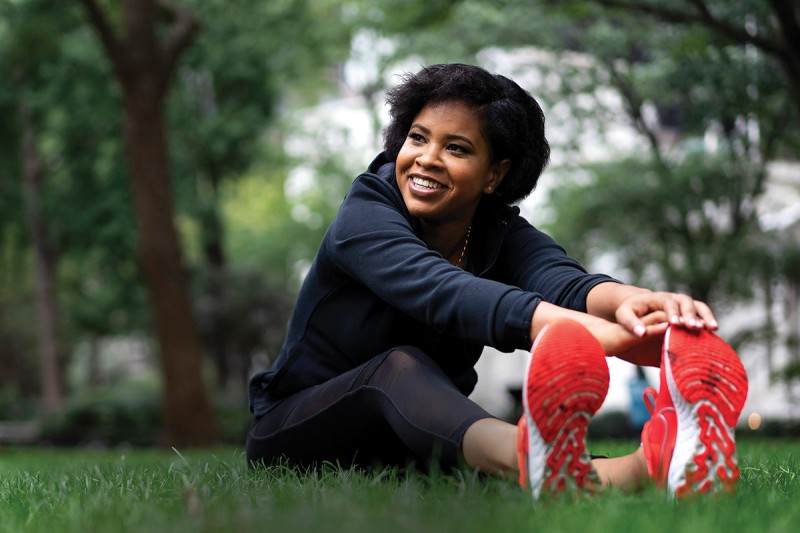
When teens and young adults are diagnosed with cancer, they can feel lost — too old for pediatric care but decades younger than most cancer patients. And their numbers are growing: A staggering 90,000 cases are projected in 2022.
The unfortunate reality is that recent advances in treatment have not benefited this age group as much as they have others. A key reason: Teens and young adults often don’t have the right kind of support, beyond their families, to get them through the gauntlet of chemotherapy, surgery, and radiation. Cancer is grueling for anyone — especially for people just learning how to live on their own.
Supporting these patients so that they not only survive cancer but also live a life beyond it is the reason that Memorial Sloan Kettering Cancer Center (MSK) established the Lisa and Scott Stuart Center for Adolescent and Young Adult Cancers in 2021. Experts from across the institution come together to identify best practices, clinical trial opportunities, and support services for patients ages 15 to 39. They collaborate with specialists at the world’s first Center for Young Onset Colorectal and Gastrointestinal Cancer, right here at MSK, as well as experts treating young women with breast cancer.
William Tap, Chief of MSK’s Sarcoma Medical Oncology Service, and Julia Glade Bender, Vice Chair for Clinical Research in the Department of Pediatrics, lead the Stuart Center.
“Our goal,” says Dr. Tap, “is to provide well-rounded care that addresses what this group needs beyond medicine — physically, emotionally, and socially.”
Philanthropic gifts from the Stuart family and The Kristen Ann Carr Fund have been instrumental to the program’s inception and growth. At MSK, there are now clinical trials just for adolescents and young adults with sarcoma. These — and soon, hopefully, more — trials will help standardize care approaches for patients around the world.
The following five teens and young adults put their lives in the hands of MSK care teams, who not only healed their cancer but also made them feel welcome, safe, and understood.
Desiree
Diagnosed with osteosarcoma in 2020 at age 31
I was having the time of my life. I was in school, working, and in a relationship. When I noticed a bump on my knee, my doctor said, “Maybe you’re on your feet too much.” But my gut knew that wasn’t right. I asked for an MRI. The doctors were shocked when it was cancer. It was, like, a one in a million chance. I didn’t want to be this kind of special.
But MSK made me feel special and important. I call my surgeon, Daniel Prince, my Prince Charming, and my oncologist, Leonard Wexler, my godfather. My nurse practitioner, Emily, is my “unofficial-official” bestie. My social worker, Alexandra, is my “professional” bestie. They would literally call just to say, “How are you?” It was like when your best friend calls. MSK also connected me with other sarcoma patients around my age. Sometimes, you need that validation, to know that “you did it, and maybe I can, too.”
Now I’m training to be a nurse who takes care of people with cancer. I identify with all the stops along their journey. But I will not rest until I work at MSK! They’re probably sick of my saying thank you. I’m not just alive; I’m living.
Charisma
Diagnosed with triple-negative breast cancer in 2020 at age 28
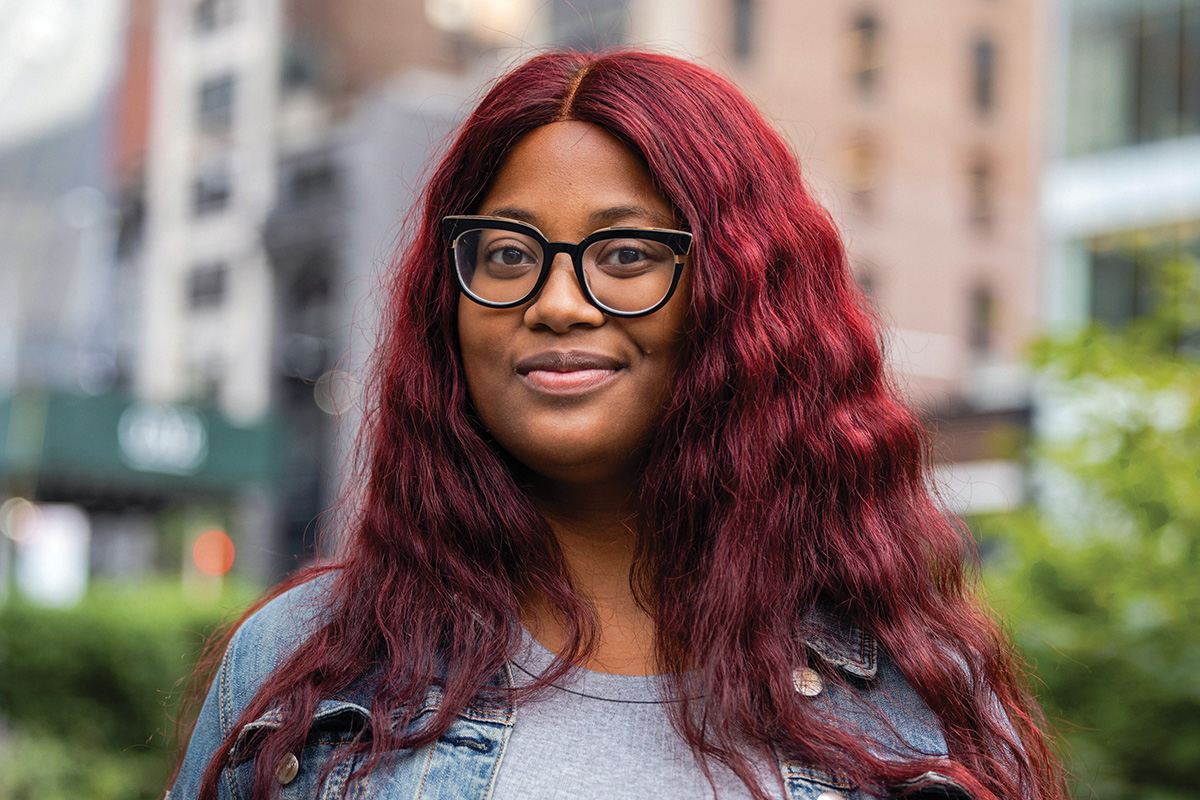
When I was diagnosed, I didn’t fully digest it. Nobody in my family was familiar with cancer. My gynecologist recommended MSK. We had to start treatment quickly because the type of cancer I had was aggressive. But even before my first appointment, my MSK team brought up the option of freezing my eggs. I don’t have kids, but I thought, “Better safe than sorry.” Everyone at MSK explained the process so well.
I was hesitant to open up about my illness because it invites everyone else into your issues. Being a young adult with cancer, you don’t really fit in. I didn’t want to be babied. I liked using the TYA@MSK app to meet other people who could relate.
Getting reacclimated with life is just as hard as treatment was. I wish I would have known that going in. Dating is hard — when do you tell someone about your experience, and how much do you say? But I’m back to doing things I love. I went to an amusement park the day after my surgeon said I could.
Mario
Diagnosed with colorectal cancer in 2020 at age 31
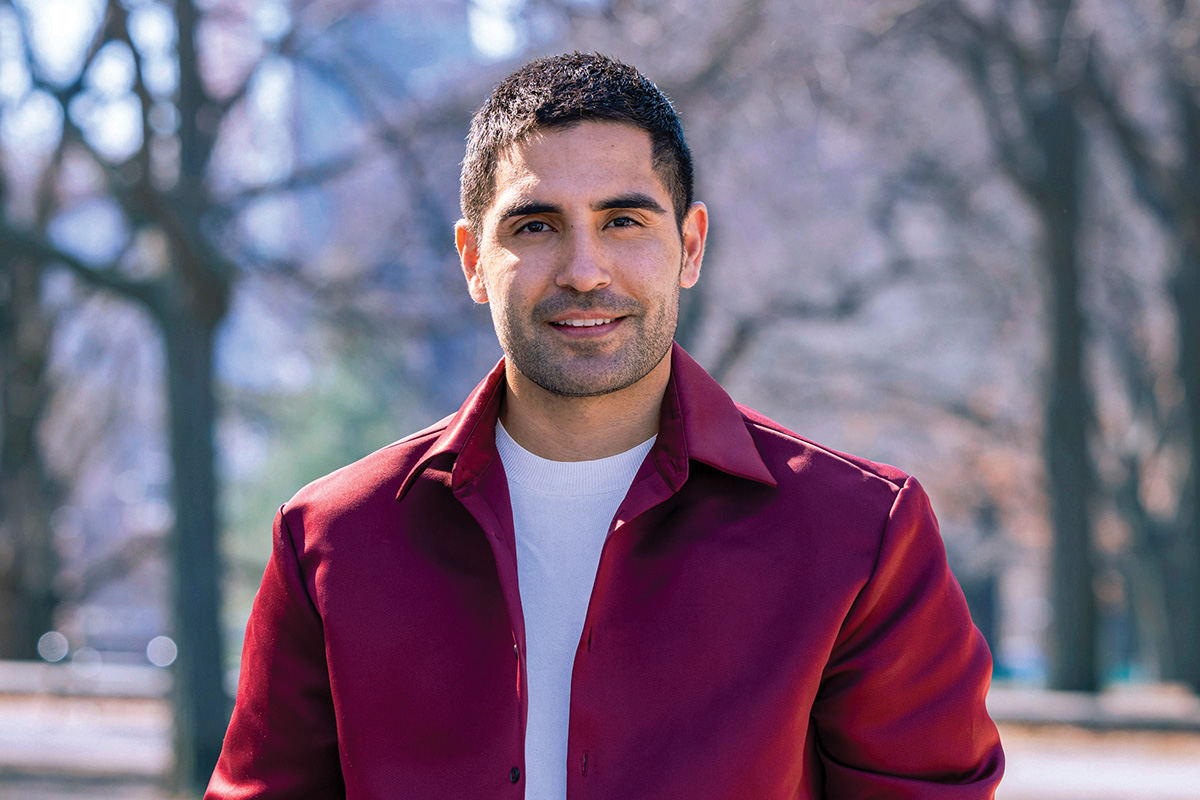
I was misdiagnosed for nine months. When I learned it was cancer, I just had this inclination to call MSK. I finally felt taken care of after a year of feeling like I wasn’t being listened to.
What I love about MSK is that they realize so many different elements go into health. Not only was my cancer being treated by the best specialists in the world with precision and compassion, but MSK has a holistic approach that is just the best. For example, I saw a psychiatrist during treatment and wrote a song with a music therapist to help combat anxiety. To this day, I see a wonderful integrative therapist and social worker. My social worker, Hadley, was so in tune with my needs as a patient that she recommended I speak with someone with early-onset cancer like me. Through MSK’s Patient and Caregiver Peer Support Program, Hadley introduced me to Michael, who knew exactly what I was going through. Because Hadley introduced us, I felt supported in so many ways. I am forever grateful.
When you’re diagnosed at a young age, it’s so isolating. No one can really relate to what you’re going through. You’re just taken out of your life. When you tell your peers, it’s over their heads. Now, I want to be a volunteer who speaks with other early-onset patients.
Tunav
Diagnosed with leukemia in 2013 at age 17
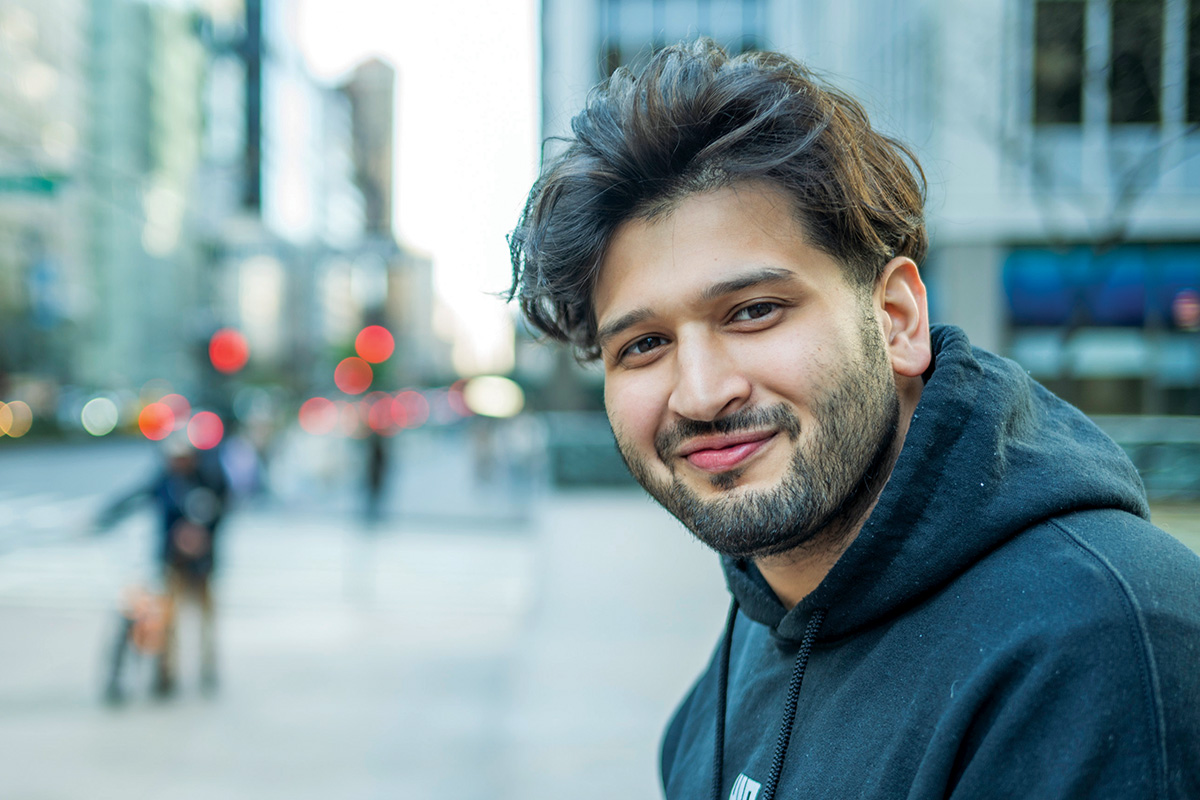
My time at MSK was amazing. I was fortunate enough to be treated by some of the best doctors in the world. Dr. Peter Steinherz invented a protocol for leukemia treatment that’s used in hospitals around the world, and I was able to sit in the same room with and be treated directly by him. What a blessing!
After I was diagnosed, I realized that everyone around me would return to their lives and I had to go fight for mine — and that was OK. I spent time on my iPad learning about footwear and watching endless seasons of MasterChef, inspired by my roommate and friend, Fabio. My social worker, Kristie, was there for some of my loudest laughs and my deepest cries. She helped me step out of my stern mindset and build gratitude.
Through the Make-A-Wish Foundation, I was connected to Pensole Footwear Design Academy to design a sneaker for Adidas based on my story. I’m currently working on an apparel brand and using it to give back to terminally ill kids with cancer. I would tell another teen in my position: “Your voice and heart are strong; share them with those at MSK.”
Eliza
Diagnosed with acute myeloid leukemia in 2018 at age 30
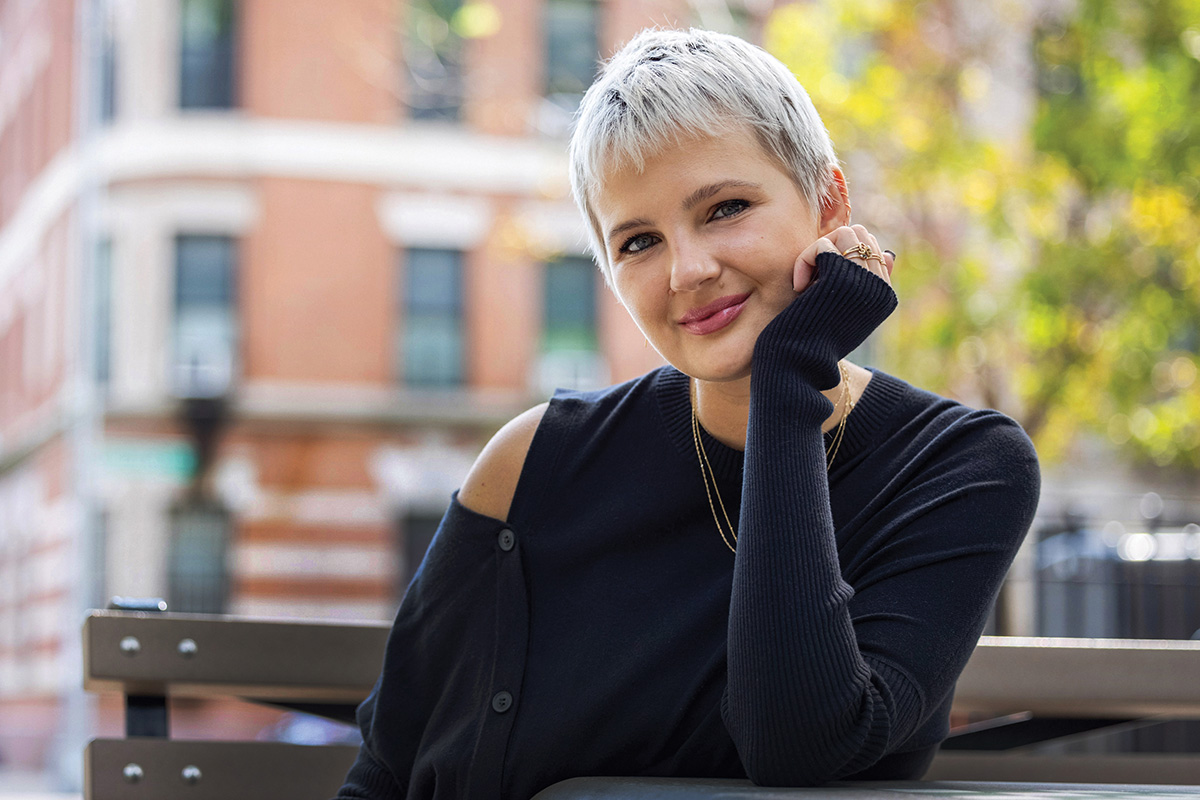
I think people are shocked when they hear of someone with cancer in their 30s. It is a time when people believe it cannot happen to them. That was me. I was training for a triathlon, doing research, and getting my PhD. Life seemed to be moving according to my plans. But when you’re diagnosed, everything comes to a halt and your main focus is survival. All of a sudden, I was at MSK, about to receive chemotherapy, knowing I would be infertile after it, when a nurse called to tell me there was a way I could save my eggs. If that did not happen at that moment, I would not have had the opportunity to retrieve 10 eggs. They are waiting for me; I call them my little wildflowers.
I was terrified not even that I was going to die but that my dreams were going to — everything I had hoped to achieve. Before treatment, I was in the caretaking role with my patients. But the role was so quickly reversed, and now I was the patient. I really valued my independence, but I learned I had to have the vulnerability to be taken care of in a multitude of ways — not only physically but emotionally, too. I started seeing a therapist at MSK. During one of our appointments, I was so nauseous that I could not even speak. She asked, “Do you mind if I just sit with you?” It was at that moment I felt that someone cared for me so deeply.
Psychological services were so important during and after my treatment and continue to be. You go through traumatic events and have thoughts that shake you, that bring you to your knees. I contemplated suicide. It is so important to be able to address these thoughts through psychological services. It is a testament to the fact that there’s no health without mental health. MSK saved my life, and so much goes into saving a life.
